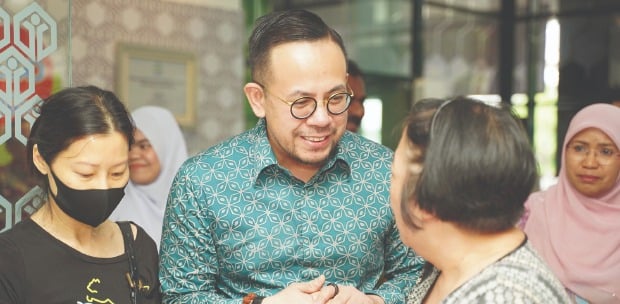AT the early stage of development, high economic growth in developing countries often begins with low levels of productivity. Typically, these countries develop alongside labour-intensive industries and natural resource-based sectors.
Hence, the prospect for improvement for these economies is high, providing them with the opportunity to boost their productivity to higher levels.
After a low-income economy is transformed into a middle-income country like Malaysia, we face various new challenges, including institutional efficiency, technological adaptation, slower industrial upgrading, and unsustainable growth.
Another challenge that tends to be ignored is social and cultural changes. The connection between social (including cultural) and economic outcomes is not a new area in planning and development.
Economic literature provides clear evidence that culture can be seen as a powerful force shaping human economic behaviour. Research shows that culture plays a significant role in explaining persistent differences in the economic success or failure of nations.
In the case of Malaysia, we can clearly observe significant structural changes included in national policies such as the 12th Malaysia Plan, New Industrial Master Plan 2030 and National Energy Transition Roadmap, aimed at boosting industrial and economic development.
However, social and cultural changes are overlooked in these policy documents.
Implicitly, the national policies assume that social and cultural changes that promote economic growth and welfare will continue or improve along with the structural changes in the economy.
This assumption is completely unjustified. Industrial transformation that is not accompanied by social changes leads to unbalanced reform, which impacts long-term economic sustainability.
Social changes from the perspective of culture encompass shifts in societal norms, values, beliefs, behaviour, and institutions. These changes can influence various aspects of economic growth and welfare.
To simplify, let's take the example of work-based culture. The dynamics of the modern workplace are undergoing significant transformations due to the interplay of various generational cohorts and their distinct social and work-based cultural backgrounds.
Baby Boomers (1946-1964) typically prioritise job security, stability, and hierarchical structures in the workplace. They may prefer face-to-face communication and traditional work hours.
Generation Z (born 1997-2012) grow up entirely in the digital age, with access to smartphones, social media, and instant communication from a young age.
They are diverse, inclusive, and socially aware. Generation Z values authenticity, diversity, and social impact in the workplace.
They are entrepreneurial, adaptable, and adept at leveraging technology for productivity and innovation. Generation Z may prefer gig work, freelancing, or remote work arrangements.
Some of the outcomes of the structural and social gaps in our economy are worth mentioning.
Double-digit youth unemployment rates compared with the overall unemployment rate indicate concerns regarding the work-based culture among young people.
The increase in the size of informal workers resulted from slower industrial upgrading.
These examples illustrate how different generations have distinct social and work-based cultural backgrounds shaped by their unique experiences, historical events, and technological advancements.
Understanding these generational differences is essential for creating inclusive and effective workplaces, fostering collaboration, and leveraging the strengths of each generation.
Minimizing the gaps between structural and social changes is key to the success of industrial transformations.
Importantly, social resilience is key to the sustainable development of a country. The approaches we use to educate children at home will determine the resilience of future society in adapting to technological changes and facing economic crises.
Education in schools also needs to be reassessed to ensure that future generations can face economic and societal challenges and retain cultural, religious, and moral values.
When we face issues of food supply, core life-sustaining subjects such as agriculture and craftsmanship need to be reinstated.
Creating a materialistic culture and progress alone is not sufficient if family and community values are fractured.
Without reform efforts in line with structural changes, these social parameters will become barriers to Malaysia's transition to a developed, progressive, and virtuous country.
The writer is a Malaysian who currently serves as the Chief Labour Economist at the Ministry of Human Resources and Emiratisation, United Arab Emirates (UAE)





